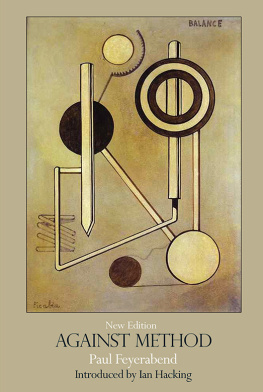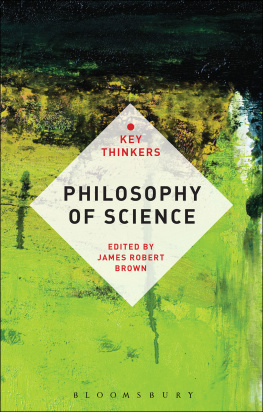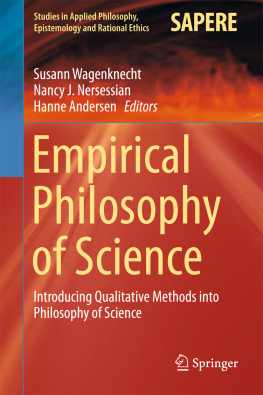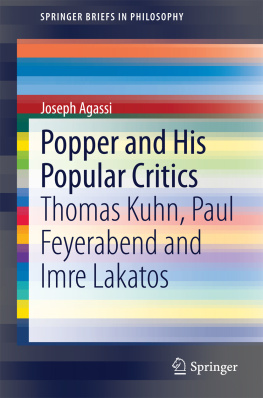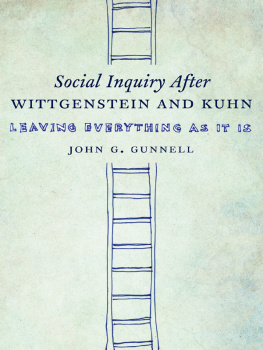
Key Contemporary Thinkers
Published
Jeremy Ahearne, Michel de Certeau: Interpretation and its Other
Peter Burke, The French Historical Revolution: The Annates School 19291989
Colin Davis, Levinas
Simon Evnine, Donald Davidson
Andrew Gamble, Hayek: The Iron Cage of Liberty
Phillip Hansen, Hannah Arendt: Politics, History and Citizenship
Christopher Hookway, Quine: Language, Experience and Reality
Douglas Kellner, Jean Baudrillard: From Marxism to Post-Modernism and Beyond
Chandran Kukathas and Phillip Pettit, Rawls: A Theory of Justice and its Critics
Lois McNay, Foucault: A Critical Introduction
Philip Manning, Erving Goffman and Modern Sociology
Michael Moriarty, Roland Barthes
William Outhwaite, Habermas: A Critical Introduction
John Preston, Feyerabend: Philosophy, Science and Society
Susan Sellers, Hlne Cixous: Authorship, Autobiography and Love
Georgia Warnke, Gadamer: Hermeneutics, Tradition and Reason
Jonathan Wolff, Robert Nozick: Property, Justice and the Minimal State
Forthcoming
Alison Ainley, Irigaray
Sara Beardsworth, Kristeva
Michael Best, Galbraith
Michael Caesar, Umberto Eco
Gideon Calder, Rorty
James Carey, Innis and McLuhan
Eric Dunning, Norbert Elias
Jocelyn Dunphy, Paul Ricoeur
Judith Feher-Gurewich, Lacan
Kate and Edward Fullbrook, Simone de Beauvoir
Graeme Gilloch, Walter Benjamin
Adrian Hayes, Talcott Parsons and the Theory of Action
Ian Holliday, Michael Oakeshott
Sean Homer, Frederic Jameson
Christina Howells, Derrida
Simon Jarvis, Adorno
Paul Kelly, Ronald Dworkin
Carl Levy, Antonio Gramsci
Harold Noonan, Frege
David Silverman, Sacks
Nick Smith, Charles Taylor
Geoff Stokes, Popper: Politics, Epistemology and Method
Nicholas Walker, Heidegger
James Williams, Lyotard
Thomas DAndrea, Alasdair MacIntyre
FEYERABEND:
Philosophy, Science and Society
John Preston
Polity Press
Copyright John Preston 1997
The right of John Preston to be identified as author of this work has been asserted in accordance with the Copyright, Designs and Patents Act 1988.
First published in 1997 by Polity Press in association with Blackwell Publishers Ltd.
2 4 6 8 10 9 7 5 3 1
Editorial office:
Polity Press
65 Bridge Street
Cambridge CB2 1UR, UK
Marketing and production:
Blackwell Publishers Ltd
108 Cowley Road
Oxford OX4 1JF, UK
Published in the USA by:
Blackwell Publishers Inc.
Commerce Place
350 Main Street
Maiden, MA 02148, USA
All rights reserved. Except for the quotation of short passages for the purposes of criticism and review, no part of this publication may be reproduced, stored in a retrieval system, or transmitted, in any form or by any means, electronic, mechanical, photocopying, recording or otherwise, without the prior permission of the publisher.
Except in the United States of America, this book is sold subject to the condition that it shall not, by way of trade or otherwise, be lent, re-sold, hired out, or otherwise circulated without the publishers prior consent in any form of binding or cover other than that in which it is published and without a similar condition including this condition being imposed on the subsequent purchaser.
ISBN 978-0-7456-6832-1 (Multi-user ebook)
A CIP catalogue record for this book is available from the British Library and the Library of Congress.
Typeset in 10 on 12 pt Palatino
by Ace Filmsetting Ltd, Frome, Somerset
Printed and bound in Great Britain by Marston Lindsay Ross International Ltd, Oxfordshire
This book is printed on acid-free paper.
For my parents
Preface
Paul Feyerabend, whose productive career lasted forty-five years, wrote on a plethora of philosophical issues. He was no narrowly-trained or narrowly-focused academic. His time as a student was divided between the study of singing, stage-management, theatre, Italian, harmony, piano, physics, mathematics, astronomy, history and sociology. He became a student of philosophy only after having received his doctorate in the subject. His career as a philosopher was an accident, and he did not see himself as a philosopher. Rather like his one-time mentor Karl Popper, Feyerabend seemed to hold the interest and opinion of those who are not professional philosophers in higher regard than those of his academic peers.
This book focuses primarily on Feyerabends philosophy of knowledge. His work in this area is exciting and important not just because it constitutes a running critique of other philosophical approaches to science, but also because of its aim. Feyerabends philosophy of knowledge suggests the possibility of freeing our intellectual lives from irrelevant constraints. It urges us to use our cognitive resources to the full, to realize the human potential that once drove the scientific revolution. In this respect, Feyerabends work both drew from and contributed to the heady climate of conceptual radicalism and social permissivism which bathed the 1960s.
Because Feyerabend wrote so much, and because this book is conceived as a critical introduction to his thought, I have concentrated almost entirely on his own writings, rather than the secondary literature, flagging the latter in footnotes where appropriate. Although Feyerabends philosophical work is founded upon the extensive study of quantum theory which he made in the early 1950s while he was one of Poppers students, I deal with this material only peripherally because it is impossible to do so in any more depth in an introductory book.
I would very much like to thank the following for their help in various respects: Andrew Wright and Jim Duthie of the University of North London, for encouraging my interest in Feyerabend; Bill Newton-Smith of Balliol College, and Kathy Wilkes of St Hildas College, Oxford University, for much inspiration, argument, criticism and help; Professor Paul Churchland of the University of California at San Diego, for answering my questions on the contextual theory of meaning and on his own intellectual relationship to Feyerabend; and my colleagues Hanjo Glock and David Oderberg, for reading parts of later drafts of this book. Finally, I would like to thank my department, the University of Reading, and the British Academy for giving me the time to complete work on this material, Martin, for his friendship, and Debbie, for her companionship and encouragement.
Professor Feyerabend was very helpful in giving me references to several of his articles. I like to think that his later self might have enjoyed, and perhaps even endorsed, my critical evaluation of his earlier self in this book.
John Preston
Reading
Acknowledgements
I am grateful to Grazia Borrini Feyerabend for permission to quote from Paul Feyerabends work; to Cambridge University Press for permission to quote from his Philosophical Papers; to Verso (New Left Books) for permission to quote from Against Method (1st and 3rd editions), and Science in a Free Society; and to the University of Pittsburgh Press for permission to use excerpts from the essay Problems of Empiricism, published in
Next page




